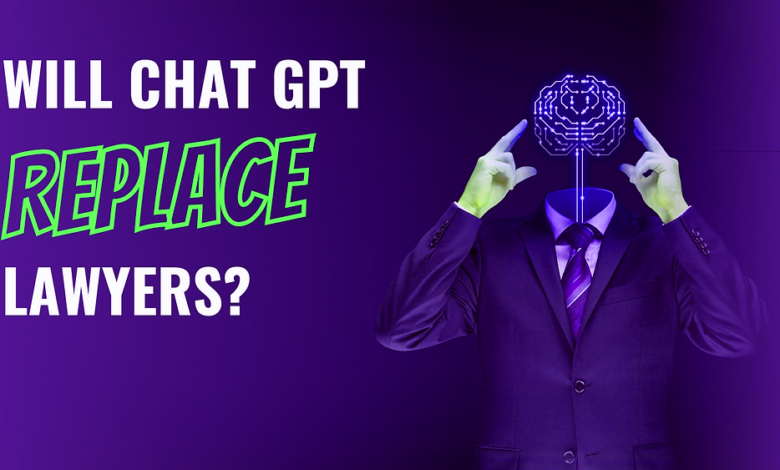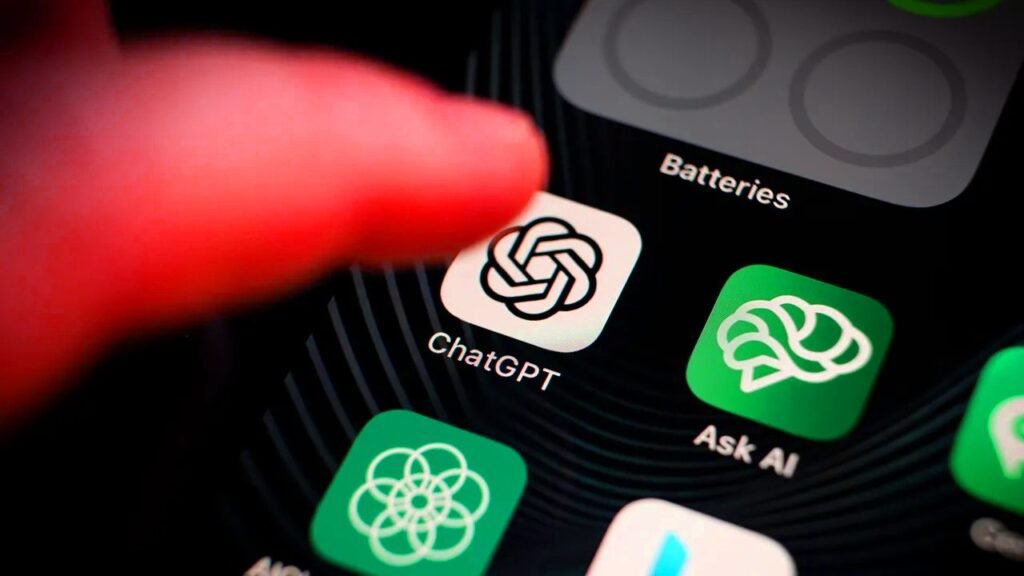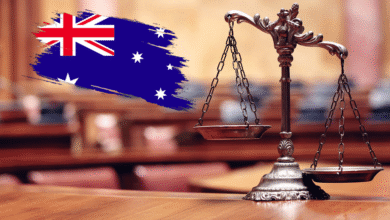Will ChatGPT Replace Lawyers?

These days, news websites are buried under a deluge of articles about ChatGPT, an artificial intelligence bot that is shaking up a variety of industries, from programming to law.
A question that both legal professionals and clients are asking is whether or not ChatGPT Replace Lawyers.
In the following sections, we will familiarize you with OpenAI, the artificial intelligence company that was responsible for developing ChatGPT, as well as the infamous chatbot and discuss the implications of its creation for the legal industry. After reading this article, if you are still interested in learning more about ChatGPT, make sure to reserve your spot in 2023, where we will be discussing, among other topics, the future of law, artificial intelligence, and ChatGPT.
What is OpenAI?
OpenAI is a company that specializes in artificial intelligence (AI) research and development. Their mission is to develop “highly autonomous systems that outperform humans at the most economically valuable work.” Tools such as ChatGPT are available for free use; however, there may be times when the demand is so high that you are unable to access it.
What is ChatGPT?
OpenAI’s ChatGPT is an AI-powered chatbot that responds to open-ended text questions with paragraphs of text-written answers. OpenAI developed ChatGPT. It was taught through a process of reinforcement learning based on feedback from humans. During this phase of the process, human AI trainers would interact with a chatbot in the role of a user and an AI assistant, then rank the chatbot’s responses to educate it on how to respond appropriately.
And, as should come as no surprise, ChatGPT is only the beginning. GPT-4 was trained using ChatGPT and lessons from OpenAI’s “adversarial training program” and was launched on March 14, 2023 by OpenAI. This large, multimodal model not only takes text inputs but also accepts image inputs, and its performance is comparable to that of a human being when measured against professional and academic benchmarks. When put to the test with a simulation of a bar examination, for instance, ChatGPT scored in the bottom 10% of test takers, while GPT-4 scored in the top 10% of test takers.
Join the waitlist if you would like access to GPT-4 when it becomes available to the public; however, it is not currently available to the public.
How do you use ChatGPT?

You can use ChatGPT with relatively little effort because all you need to do to get started is enter your request on the ChatGPT website or through the WebChatGPT Chrome plugin. You can also access ChatGPT if you’re working from your iPhone by downloading the app for ChatGPT on the iOS platform.
You could, for instance, ask the tool to write a poem for you, provide an answer to a question in Shakespearean English, or solve difficult mathematical problems.
You’ll get a one-of-a-kind answer that’s surprisingly accurate on the same website once you get to that point.
Read More: Should Lawyers Use Artificial Intelligence for Briefs?
What ChatGPT offers lawyers
Despite the fact that ChatGPT is still in the research phase, legal professionals are naturally curious about how ChatGPT can assist attorneys.
There is no question that law firms have the potential to benefit from ChatGPT’s opportunities. When given the right prompts, the benefits of automating your writing with AI appear to be endless. These benefits range from the creation of legal marketing content to the drafting of legal documents.
In addition to this, businesses are already exploring the possibility of utilizing GPT technology to better serve their legal customers. Take, for instance, Harvey AI, a piece of AI software that was developed specifically for legal work and is already demonstrating some encouraging results. In light of these developments, it is abundantly clear that artificial intelligence (AI) has a role to play in the legal system; however, the precise nature of this role is still unknown.
Challenges ChatGPT poses for lawyers
In addition to restrictions imposed by technology, such as the prohibition against using electronic devices within the courtroom, ChatGPT must contend with additional challenges posed by the law.
To start, this technology is still in the process of being refined. And despite the fact that its responses may be uncannily accurate, ChatGPT is not a real human lawyer.
Additionally, it is not always accurate; users have reported that the chatbot-in-training has provided them with incorrect information on occasion. The fact that ChatGPT can only access information dating back to 2021 and earlier is a contributing factor to the platform’s tendency toward imprecision. However, competitors that crawl the web in real-time, such as Google Bard, run the risk of pulling incorrect information that has been published online.
Because it does not possess the subtlety required to generate consistently accurate responses, much less intricate legal arguments, it is safe to say that ChatGPT is not yet in a position to replace lawyers, at least not at this stage in its development.
In addition, the ethical obligations of a lawyer will always take precedence over the convenience of their clients.
Not only does the use of AI to argue your cases for you raise ethical concerns, but the transmission of data between your firm and ChatGPT can also raise concerns regarding the security of the data, the client’s right to privacy, and the privileges of the attorney-client relationship. Before using the service, attorneys are required to become familiar with ChatGPT’s Privacy Policy and Terms of Use. This is due to the fact that the chatbot stores personal as well as conversational data.
Embracing technology—responsibly—in your law firm.
Although we have discussed a few of the ethical challenges that may arise from using ChatGPT in a law firm, we are also aware that an enthusiastic adoption of technology has a positive effect on the business performance of a law firm. This is something that is highlighted in the 2020 Legal Trends Report. The implementation of multiple technologies has an effect that is additive to the performance of the business, both in terms of the impact it has and the total volume of casework and revenue collection it facilitates.
Adopting technologies that help to streamline routine legal tasks, save time, and help you to imprint your expertise on tasks that matter the most is, in essence, a win for any law firm that does so. However, it is essential to evaluate and implement technology responsibly in order to guarantee that you are meeting your ethical obligations and protecting the interests of your client.
Will ChatGPT Replace Lawyers? Final thoughts
What function, if any, ChatGPT could have for the legal industry can only be determined with time.
Nevertheless, there is one thing that can be said with absolute certainty: responsibly adopting technology has the potential to help save time managing your law firm and has a measurable impact on the performance of your law firm.
It would be best if you also thought about how to get the most out of your investments in technology. For example, software comes with a variety of features, such as the ability to process payments and take on new customers. In addition, because we work with over 200 integration partners, we can tailor your experience to meet the specific requirements of your business.
Read More: AI And The Legal Industry: How Can Law Firms Use it?











